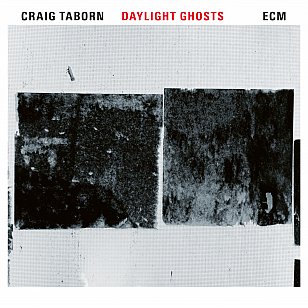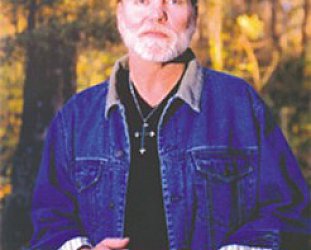Graham Reid | | 1 min read
Jamaican Farewell

Late on this album by the American pianist Craig Taborn and his quartet, they deliver a thoughtful version of Jamaican Farewell, not the song made famous by Harry Belafonte – that is Jamaica Farewell – but the wistful tune by Roscoe Mitchell which appeared on his '99 album Nine to Get Ready, also on the ECM label.
It's a fine tribute to Mitchell and follows two albums (Conversations I and Conversations II, both 2014) where the pianist joined that great exploratory jazz saxophonist and co-founder of the influential Art Ensemble of Chicago (who also recorded Jamaican Farwell).
But the quality of this interpretation lies in its thoughtful spaciousness, Chris Speed's weary clarinet playing and its reflective quality. Perhaps that is because Mitchell in now in his mid 70s.
What follows is the even more spare original Subtle Living Equations which, being played out for fewer than five minutes, has an almost holy minimalist quietude about it, with only the smallest of romantic lyrical flourishes in its first few minutes then becoming finely focused through increasing but gentle intensity.
The final piece Phantom Radio – which lives up to its title in its left-field ambience and subtle cosmic prog-jazz – moves in a very different direction with the group's drummer Dave King (also of the Bad Plus) on electronic percussion and behind Speed's long tenor lines, Chris Lightcap gets on electric bass and Taborn layers piano and electronics.
The final third of this album has enormous musical and emotional reach, that last track perhaps very appealing to those into jazz electronica and the music of German experimentalists of the Eighties.
But things here start very differently: The Shining One which opens proceedings is a jittery, angular piece on which Taborn and band bob between busy post-bop and crisscross free-leaning improvisation; Abandoned Reminder alludes to ballad form but eases towards a strangely cinematic evocation before pulling the listener back with a very memorable melody at the midpoint which becomes increasingly aggressive; and the title track is exactly as it says with an ethereal, world-weary spiritual quality into which Taborn injects somewhat disconcerting minor moods.
Right at the centre – after the briefly funky and lively, Caribbean-sounding New Glory – is the slow and mysteriously unpredictable The Great Silence followed by the eight minute-plus exploration of Ancient which grows organically as the players join Lightcap's opening acoustic bass part.
It's the sound of an integrated quartet confident in each other's company and prepared to risks, yet ironically given the broader context here it is the most conservative if not predictable.
The Taborn quartet stake out a lot of ground for themselves here but this album is programmed intelligently: It draws you in with its energy but then rewards as much with digressive and sometimes disarmingly meditative passages. Before flipping you again.
A fascinating album for those prepared to let it work its strange charms and challenges.





Chris P - Feb 21, 2017
Excellent album! Just as you could pick out just about any Blue Note album from the 60s and go down the rabbit hole of finding all the great albums that the personnel played on and led, you can do the same with the personnel on this Taborn album and be intensely rewarded.
Savepost a comment